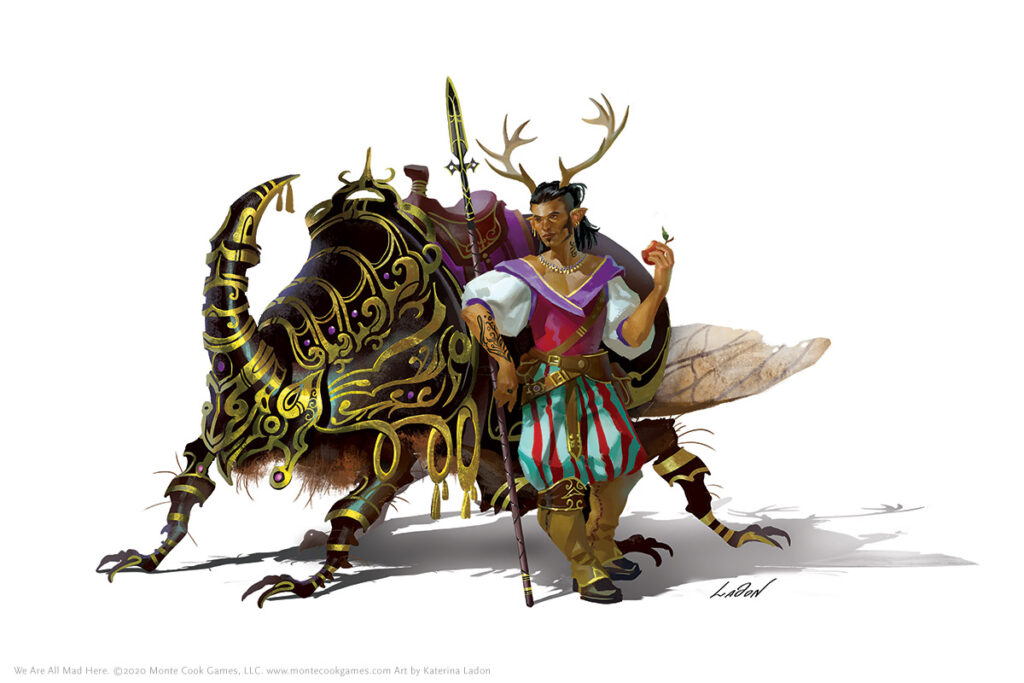Questions about the Cypher System Open License or the CSRD? You can find answers to common questions here. But note that the CSOL is a legal and binding agreement you make with MCG. Nothing on this page is legal advice. If there are elements of the CSOL you do not understand, consult a lawyer before publishing under the agreement.
To see the most recent version of the Cypher System Reference Document, check the Changelog (you can find it in the menu bar).
The short answer is no. The Cypher System Open License does not grant permission to use MCG’s trademarks or content from any of our products other than the CSRD.
The longer answer: You can certainly make a Cypher System-compatible product that would work well in a science-fantasy environment. Or a dimension-hopping game. Or a science-fictiony, post-apocalypticy version of the Cretaceous Era. So long as it doesn’t reference our trademarks or cite content from our products.
Absolutely. The Cypher System Open License doesn’t restrict how you bring your product to market.
Products created under the Cypher System Open License can use as much or as little of the CSRD as needed—including none of it! So if you want to make, for example, a bestiary of creatures for the Cypher System, that doesn’t include any CSRD content, that’s fine. You can still use the “Compatible with the Cypher System” logo, and/or include the phrase “Compatible with the Cypher System” on your product and marketing, so long as you adhere to all the license terms.
Nope. You can only use the CSRD.
We have, from time to time, updated the CSRD to include content from other MCG titles. (As of 10 February, 2023 that includes Godforsaken, The Stars Are Fire.) If it’s in the CSRD, you can use it. If it isn’t, you can’t.
We may add additional content from other MCG products to the CSRD in the future. We don’t have any specific plans to announce at this time.
Yes, absolutely. The only MCG-produced content it can contain is from the CSRD, though (not other MCG products), and it must comply with all terms of the license.
So long as the material does not include content from MCG products other than the CSRD, sure. So you could publish a set of resources based on the CSRD. Or on an adventure or setting of your own design. But you couldn’t convert, say, The Dark Spiral for a VTT, because that would require you to include content from that MCG adventure.
Sure. You may use as much or as little of the CSRD as you choose, and you can alter the CSRD as you see fit for your creation. That includes translating text from the CSRD into another language. BUT HERE’S AN IMPORTANT CAVEAT: Your work must be your own. Just like you don’t have permission to copy text from our books, you also don’t have permission to copy text from anyone else’s—and that includes translated versions of our products. So if there’s a version of the Cypher System Rulebook in your language, you can’t just copy that text. Whatever CSRD content you translate, you must translate yourself.
Now, here’s a caveat to the caveat: Our foreign-language publishing partners often have established translations for specific game terms. Matching their use of common game terms will ensure that your product is as compatible as possible with other Cypher System products in your language.
The CSOL doesn’t place any limits on your rights to share content you create. If you’d like to allow other publishers to use, in products they produce under the Cypher System Open License, content you created, that’s fine. That’s a decision or agreement that’s separate from the CSOL, though. The CSOL itself doesn’t facilitate or necessitate open content beyond the CSRD itself.
That provision of the CSOL protects you, and everyone who benefits from the Cypher System brand (including gamers, MCG, and other licensees) from becoming associated with the worst ugliness we see in the world, and on the internet, today. Nobody wants to proudly publish a shiny new CSOL product they’ve poured their heart and soul into, only to find a week later that the Cypher System is being tarred and feathered on the internet because some other CSOL licensee has published a neo-nazi game, or an adventure about child abuse.
Conflict is at the heart of fiction, and bad stuff is often the basis for adventurous conflict. Our concern is works that promote, overtly or through lavish depiction, repugnant activities or views. The bad guys do bad stuff, and the good guys are out to stop them? That’s not promotion—that’s heroism.
You’ll have to make a call as to whether your depictions are problematic—it’s impossible for MCG to judge a product in the abstract without seeing the completed work and the context in which bad stuff is presented. So long as your goal is not to promote, or even excessively dwell on, the sort of thing you know we, and other licensees, don’t want to be associated with, you’re probably OK.
